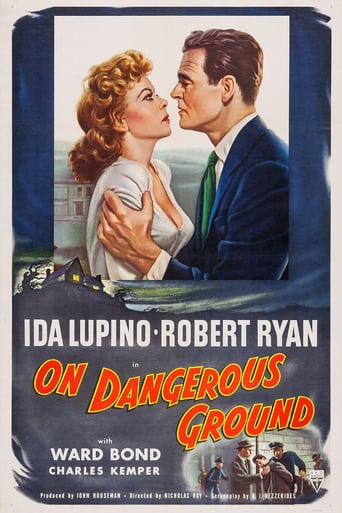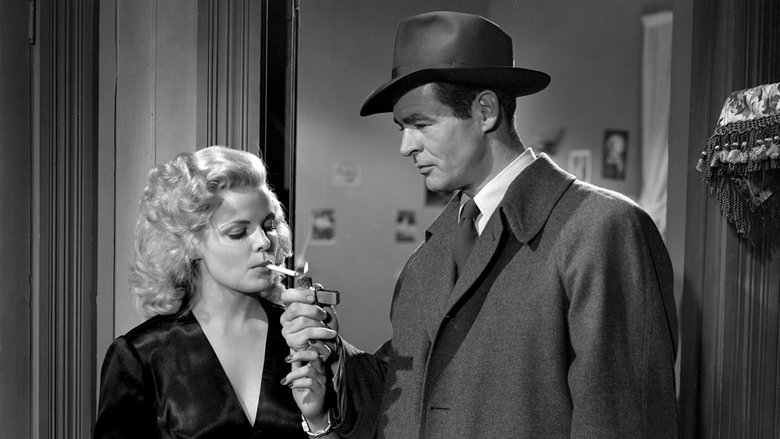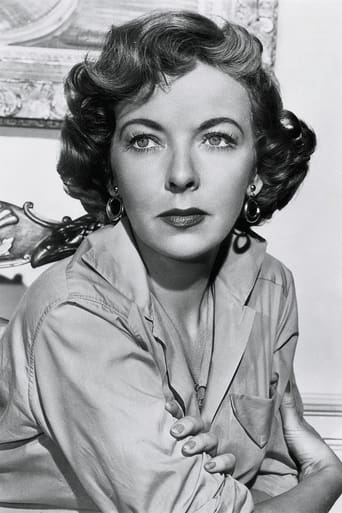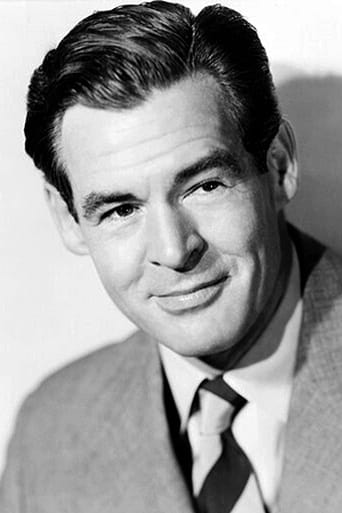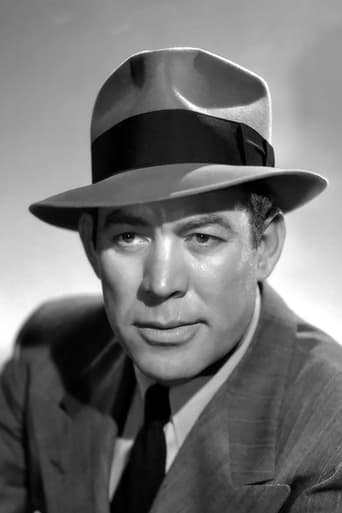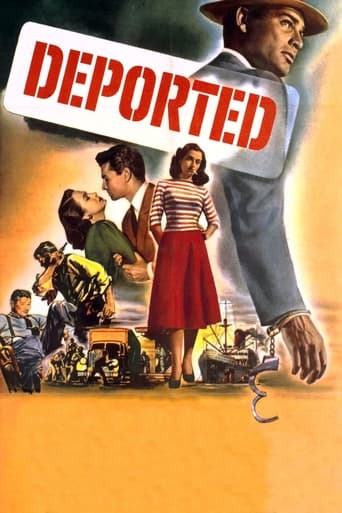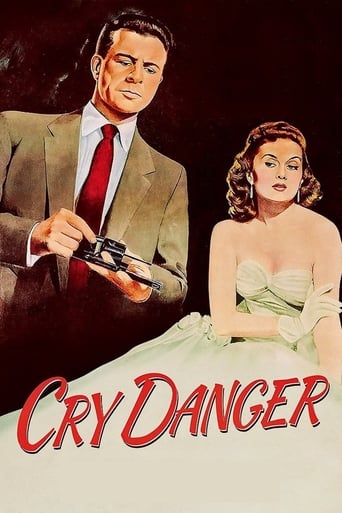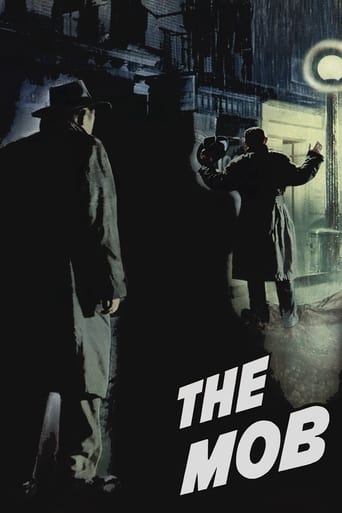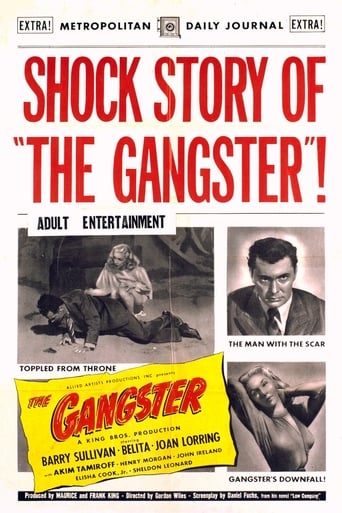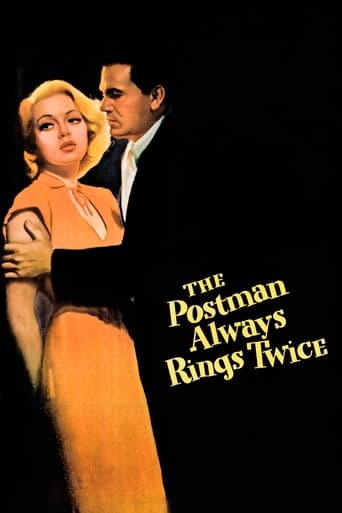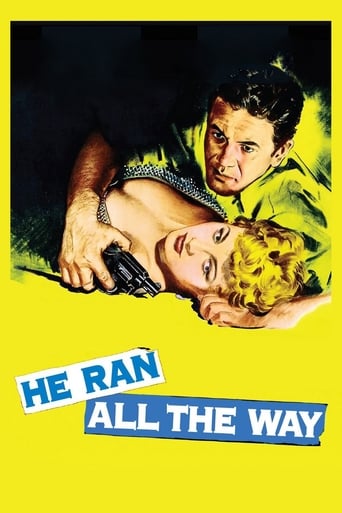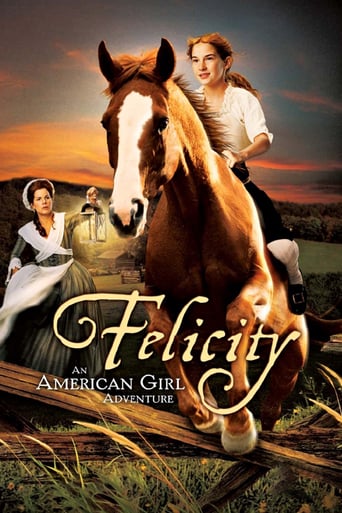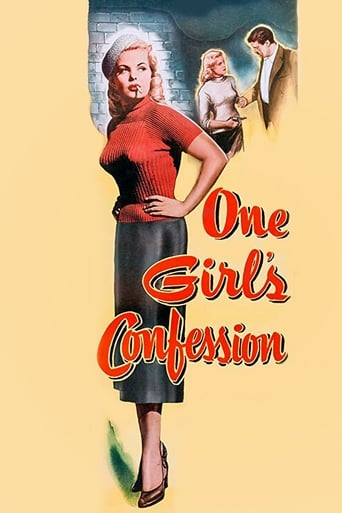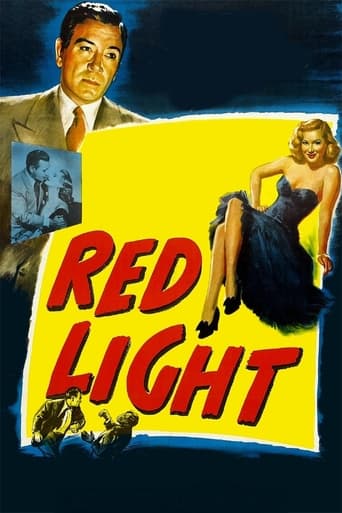On Dangerous Ground (1951)
A big-city cop is reassigned to the country after his superiors find him too angry to be an effective policeman. While on his temporary assignment he assists in a manhunt of a suspected murderer.
Watch Trailer
Free Trial Channels
Cast


Similar titles
Reviews
An action-packed slog
Although I seem to have had higher expectations than I thought, the movie is super entertaining.
A film of deceptively outspoken contemporary relevance, this is cinema at its most alert, alarming and alive.
Great movie. Not sure what people expected but I found it highly entertaining.
When I turned this on, the music took me immediately to North By Northwest even though that film was considerably later than this one. The story behind this low budget film is interesting. It started with a solid a solid director and then changed directors which is what makes the film seem like 2 different movies. I can not be sure but I think Ida Lupino might have directed the second half.Lupino has more recognition as an actress but got into directing quite early on in her career. Though she is not credited here, it certainly reflects the change and was only about the 3rd film she directed. Later on she would direct several more films and a large amount of television.Robert Ryan does an incredible job as the real main role connecting the 2 halves. The music score by Bernard Herrmann is outstanding as always and adds much to the movie.
I still see those dark figures outlined against a bleak sky and snowy terrain, Ryan in his improbable city clothes and hat, plus Bond in his outdoor hunting gear. Only it's not deer they're chasing. Instead, the boy is climbing ever higher and higher above them. But that's only one arresting visual in a film full of gripping visuals, and taut emotions. In my 60-some years of movie addiction, this is one of the most memorable and thought provoking. From jittery urban opening to serene pastoral close, it's perhaps the most moving tale of humane redemption I've seen.And who better to play hardened city cop Wilson than the great Robert Ryan. Those beady black eyes are unforgiving whether smacking around a closed mouth hooker (Moore) or thumping on a masochistic thug (Irving). Maybe he's just doing his job, then again, maybe he's come to enjoy it. Whichever, he's one tough cop who's in trouble with the higher-ups for his too often brutal methods. But then, all he sees, as he grimly observes, are cheaters, criminals and low-lifes. Worse, the people he theoretically protects use the word 'cop' like it was a curse word. So, who wouldn't encase himself in reptilian skin in order deal with that world. But unlike his cop partners, who return home to a wife and family, Wilson returns only to athletic trophies that have long since lost meaning. In short, he's thoroughly alienated from others, whether he realizes it or not.Those city street scenes are grippingly staged in true noir fashion, underscoring the twilight world Wilson inhabits. The way director Ray films complements Wilson's predicament perfectly. And when the camera cuts away from the violence, we are almost made to feel the agony that follows.Note how Ray and co. use the many road shots to advance the story. Once Wilson's sent north to 'Siberia' (Colorado) as punishment, he travels inwardly into a different world of snowy mountains and open spaces. Still, he carries the city and his job with him. Only now, his assignment is specific: help catch the killer of a young girl, now fleeing across the snowscapes. Too bad Brent (Bond), the dead girl's dad, is no help. He snarls out 'city cop' like it's a curse word, just what Wilson needs. On the trail, the suspect's tracks lead to a cabin in the snowy wilderness, where it seems a strange woman lives. Note the warm fireplace when they enter, a promising relief from the alienating outdoors.This is a part tailor made for the soulful Lupino as Mary (note the name), who's blind and lives with her brother. But he's gone visiting, so she says. Betraying his deeply buried sensitivity, Wilson soon discerns her handicap though she says nothing about it. The uncaring Brent, however, storms about the house, intent only on finding his daughter's killer. In fact, Wilson must now confront someone more intense than himself; in short, Brent amounts to a rural version of the brutal Wilson, the city cop. And so begins the process of sensitizing Wilson to his own excesses and the needs of others. Lupino manages to keep her blind girl part from becoming too sticky. Director Ray has positioned cues about the house that help Mary navigate the surroundings, like the hanging twigs she touches in the fireplace room. As a result, we get the impression she can take care of herself despite the handicap. Still, she must now deal with an enraged Brent and a purposeful Wilson who've suddenly invaded her little world.The hardened city cop is now in a dilemma. It looks like Mary is hiding her brother, who in fact is the killer. At the same time, he wants to protect her from the overbearing Brent. This amounts to a new role for him, one that he has perhaps never experienced. In a sense, he has begun to perceive Mary's predicament through her handicapped eyes instead of his own. For he himself has been blind to others in a figurative way. But now he's learning there are other ways of seeing besides the visual.That scene of Mary opening the cellar door at dawn is a powerful one. Danny (Williams), her brother, cringes in shadow while behind her shines the newborn sun. If only she could convince him to go with Wilson, Danny would be safe. It's a near-religious moment, religious in a good sense that doesn't exaggerate. And when Wilson throws away Brent's rifle before he can possibly shoot Danny, we know the bad cop has at last been left behind. Still, it's surprising that once the conflict with Danny is over, Mary doesn't just fall into Wilson's now caring arms. But she's had her own little world too long to share it with a relative stranger. So they part for their separate worlds. Mary, riddled with grief; Wilson grappling with the changes as he travels the road back to the city. But this is not the end.Apparently Ray disliked the actual ending, saying he didn't believe in miracles. But the ending is not just superbly touching, but also quite appropriate. For both Mary and the city cop have managed to overcome the isolated worlds they too long dwelt in. To me, the movie is one of the grittiest, most moving, tales of redemption I've been lucky enough to catch.The production amounts to a happy collaboration among Hollywood's most talented movie makers— from producer Houseman (what would the movie be like without the expense of those real Colorado mountains?), to director Ray (with him, you don't just see the screen images, you feel them), to composer Herrmann (this he says is his best score and that includes the many with Hitchcock), to, of course, the luminescent pairing of Lupino and Ryan.Anyway, my words are only words. If you haven't seen the movie, please do. I don't think you'll be disappointed.
I have read some reviews about this film and how Nicholas Ray did not care for "The Happy Ending" that RKO forced upon him. This was one case where the studio was right. Jim Wilson (Robert Ryan) was a tough loner cop along the lines of "Dirty Harry" Harry Callahan (Clint Eastwood), or Jack Murphy (Charles Bronson) in "Murphy's Law", who was very destructive towards others and even himself, who simply did not care about the "Constitutional Rights" of criminal suspects, and would not hesitate to beat them up (Although Miranda v Arizona did not become the Law for over a decade later). Spoilers: Wilson is sent upstate to investigate the murder of Julie Brent(Patricia Prest) It was really to to get him away from the complaints about his tactics by his boss Capt. Brawley (Ed Begley). There he meets Mary Malden (Ida Lupino) a very sweet woman who is legally blind (Although an operation can restore her sight, but she keeps putting it off because of her brother Danny (Sumner Williams), a developmentally challenged adult). Danny, who is Mary's lifeline to the world, is the killer of Julie, and he is hunted down by Wilson and Julie's father Walter (An extremely angry and obsessed Ward Bond). Danny is eventually killed in an accident, Wilson leaves and Mary will have to fend for herself. However, Wilson realizes that he needs Mary every bit as she needs him and goes back and gets her, and she will be able to get the operation she needs. The themes to this film were loneliness and blindness: Wilson is blind to things such as love and compassion, just as much as Mary is blind to things around her, and both were on the path to destruction (Wilson by harming others and (or) himself, and Mary by having no one get basic things like food and fuel (It was a snowbound area she was in)), and both were lonely in their lives, and both depended on an unsavory element to survive: Wilson with the criminals and Mary with her psychotic brother. But by bringing Mary back with him (The scene of him driving and thinking about Mary was particularly effective), they both had the opportunity to find the things they were missing in their lives. This last part is where RKO got it right: By giving Wilson the chance for redemption, Mary is able to win as well. Will it be a happily ever after ending like a fairy tale? Not at all (Mary still has to deal with the death of her brother, and Wilson still has to deal with the criminals he encounters everyday). But it is an ending where you feel good that there is hope for Jim and Mary, while not thinking it is totally unrealistic. It is a noir classic. 10/10 stars.
Jim Wilson is a tough, cynical cop, who doesn't trust anybody.This gets him in trouble a few times.Then he is sent up north to find the killer of a young girl.The girl's father, Walter Brent, wants to kill the guy.The case leads Jim to a blind woman, Mary Malden, the sister of the fugitive.On Dangerous Ground (1952) is directed by Nicholas Ray.Bernard Hermann is behind the great score.Robert Ryan is a perfect man to play Jim Wilson.Ida Lupino is marvelous as Mary Malden.Ward Bond is superb as Walter Brent.Charles Kemper is terrific as Pop Daly.Anthony Ross is great as Pete Santos.Ed Begley does excellent job as Capt. Brawley.The movie has lots of scenes that make this a film-noir classic.One is where Jim beats Bernie so that he could betray his partners.And when Jim starts roughing up a thug.It's just a fantastic scene where Jim and Walter follow the car on the icy road.This movie is not your typical film-noir.It deals with matters like loneliness.So it doesn't give you only thrills, it also touches.

